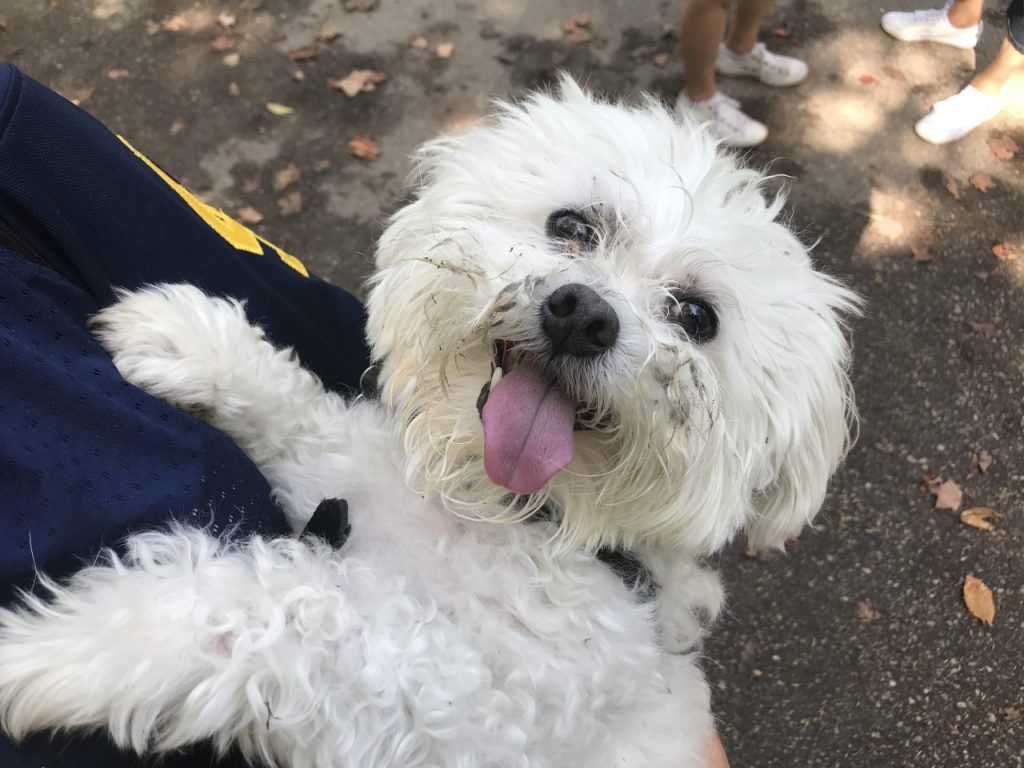Pandemic Puts Strain on Pet Care Providers
Veterinary clinics couldn’t offer routine care for weeks. With appointments filling up, many say they’re exhausted.

Reporter’s note: This story is dedicated to my beloved Louie, who died unexpectedly after a brief illness in July. Rest in peace, little buddy. — PB
Unless your pet is sick or injured, it could be weeks before you can make an appointment with your veterinarian.
Vets were unable to provide routine care during Michigan’s stay-at-home order. When it was lifted in June, many clinics prioritized their appointments, scheduling things like vaccinations later in the summer.
Dr. Melissa Owings is the president of the Michigan Veterinary Medical Association. She says the COVID-19 pandemic has been difficult for doctors and technicians at her clinic, Kibby Park Animal Hospital in Jackson.
“We’re seeing more burnout, more compassion fatigue in veterinary medicine than I think we have ever seen before.” — Melissa Owings, DVM, president of the Michigan Veterinary Medical Association
Owings says vets have taken great care to minimize the spread of COVID-19.
Her clinic started restricting pet owners’ entry in March, when the state of Michigan confirmed its first human cases of COVID-19. It also stopped doing elective surgeries such as sterilizing pets. Many restrictions are still in place, such as requiring clients to drop off their pets and wait outside in their vehicles while the animals are being examined or treated.

“For years, we have known that the next pandemic would be zoonotic — that is, something that came from another animal, most likely a bat, and mutate into something that would affect humans,” Owings says. “As professionals, we need to make sure that we wear our masks, our eye protection, use appropriate sanitizing, so we can keep our clients and each other safe.”
Owings says vets do try to see urgent or emergency cases as soon as possible.
“If it’s a case in which a pet’s condition could rapidly deteriorate and compromise quality of life, then we get them in,” she says. “Then there are some patients in which their conditions are stable, we can try to work them in within a day or two.”
One thing that has helped vets during the pandemic is the ability to offer telemedicine to clients. This allows them to see and diagnose a pet virtually in cases where they can’t examine one in person. Owings says this has been especially helpful for established patients.
“We use Zoom,” she says. “If I see a pet and say, ‘yeah, Smokey’s not looking good today,’ or he’s lethargic, not eating or drinking, he needs to be dropped off or come in to have an examination.”
Owings says she knows that waiting can be frustrating for pet owners, especially if their animal companions are sick.
“But I think they’ve been very understanding,” she says. “What we’ve done is try to program our clients to make sure they monitor their pets on a daily basis. If they notice something is off, such as unusual behavior or illness, they need to jump on that immediately.”
If it’s been a while since a pet owner has made an appointment with a vet, Owings says now is the time to make one.
“Even if they have to book into September or October, at least they have an appointment on the books,” she says.
Owings says she does not know whether the pandemic has caused more people to euthanize critically ill pets because they weren’t able to see a vet in time. But she says emergency veterinary hospitals are available for the most serious cases.
Trusted, accurate, up-to-date
WDET is here to keep you informed on essential information, news and resources related to COVID-19.
This is a stressful, insecure time for many. So it’s more important than ever for you, our listeners and readers, who are able to donate to keep supporting WDET’s mission. Please make a gift today.
